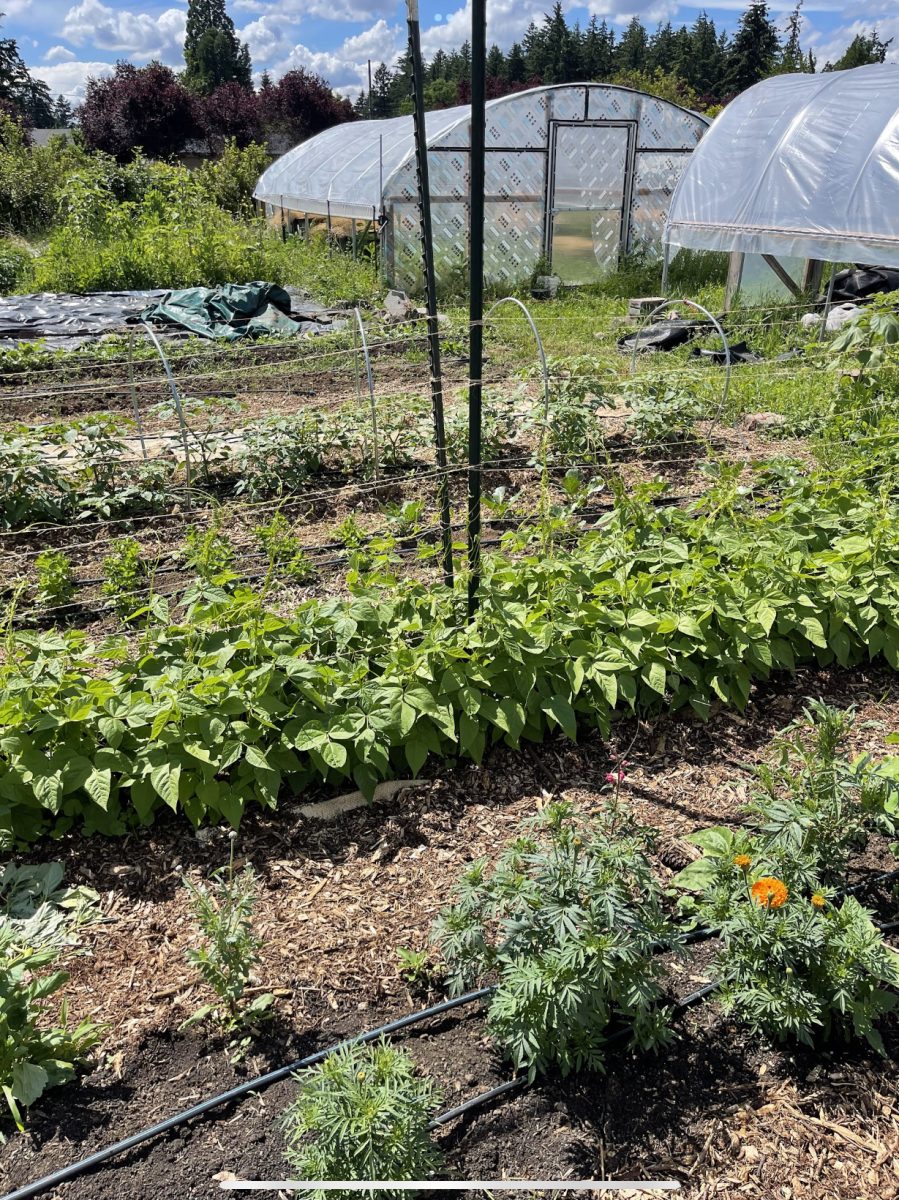Sitting on 1.15 acres in the Brentwood-Darlington neighborhood of Southeast Portland, Black Futures Farm seeks to produce healthy food in a community oriented space. Along with growing crops and distributing food, the group aims to promote farming education for the Black community. Lead farmer Daniel Grady explains the multifaceted nature of the community farm.
“It exists not only just for food, but to have a space where Black people can be seen, loved, empowered and celebrated, all while being in community with people who have common bonds,” said Grady.
Along with handing out food to all volunteers and visitors, the farm donates to churches, schools and Feed The Mass, a local non-profit. The group hopes to combat food apartheid in Portland.
“[Food] apartheid is where food is being withheld from people, or decisions are being made to where people can’t access food,” Grady said. “ We make it a point to make stuff accessible to everyone. If you’re out [at the farm], you’re not going to leave without food.”
Bear Light Asa Necessity is an assistant farmer and self proclaimed mascot for Black Futures Farm. They emphasize the importance of education in the goal of Black food sovereignty.
“People can come to our farm space and learn more than just the basics—the integral parts of farming,” said Necessity. “There’s gatekeeping of the information that goes with farming that doesn’t allot for that education to be readily available for people like myself who grew up in cities, who did not have access to it.”
Lincoln club Flock Feast also works to combat food inequality in Portland. In partnership with Clay Street Table, a food pantry, the club provides groceries for low income families in the Lincoln community as a food pantry.
Senior Mirabelle Hale has been a member of Flock Feast since sophomore year and is now one of the leaders. She highlights the difficulty of accessing fresh food, especially in the city’s food deserts. A food desert is defined as a generally low-income region where the majority of households are a half mile or more from high quality, fresh food. According to Willamette Week, six Portland neighborhoods can be defined at food deserts.
“It’s really hard to get fresh food in food pantries and food banks because a big part of food deserts is accessibility to fresh, nutritious food. There are a lot of convenience stores, but a lot of it is not fresh,” said Hale.
While their pantries are open to everyone, Flock Feast also holds events for minority groups to gain access to types of foods not commonly found in other food pantries.
“We have an Asian pantry for culturally specific food, because that’s hard to get from major food pantries,” said Hale.
To get involved, students can join Flock Feast, which meets every Tuesday after school. Lincoln students interested in combating food inequality can volunteer at Black Futures Farm starting in March. The farm’s website, black futures.farm, and Instagram account, @blackfuturesfarm, includes more information about food sovereignty, educational resources and farm opportunities.


Daniel Grady • May 5, 2024 at 10:27 am
Great job you all. Continue to do good work